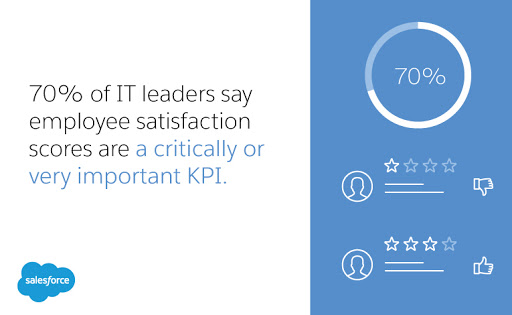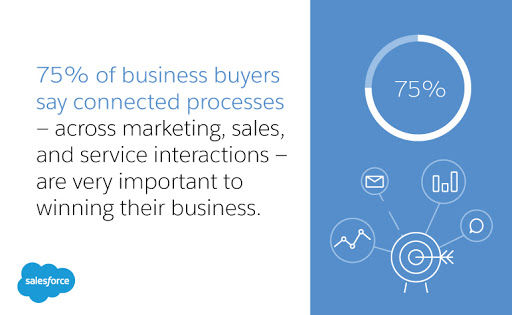The Benefits of ERP Software and Apps

It’s pretty hard to get where you want to go if you don’t know where you’re going. And in order to progress toward a goal, you need a plan. Any business that wants to scale and grow in a healthy way takes time to plan its direction and allocate resources. While there is a little bit of timing and luck involved in the early stages of a business, there is rarely long-term success and continual growth without a deep understanding of the business and a concrete plan for growth.
Everything from funds allocation to annual and quarterly key focus areas is planned. Managing core business processes around an inspiring vision is a recipe for success. But enterprise resource planning can be much more complex than that for many in management positions. Fortunately, there are software solutions and apps to support your efforts. ERP software will help you understand your business and plan your way toward a prosperous future.
What is ERP software?
How does ERP software work?
What are the benefits of ERP software?
The benefits of ERP software
1. Consolidation of business processes across an organization
2. Better cross-department communication
3. Greater control over costs and savings
4. Quicker task completion
5. Improved planning
6. Enhanced data security
7. Greater employee satisfaction
8. Improved customer acquisition
1. Consolidation of business processes across an organization
As organizations grow, the way the business runs can become decentralized. For example, unique systems and processes may be used in each different department, and organizational silos can result. When this happens, it can be hard to quickly gain a holistic view of business processes. Without one centralized hub or established process, it’s very difficult to evaluate where your organization stands and determine where you’re going.
2. Better cross-department communication
In some large organizations, each department has its own way of tracking successes and running processes. While some autonomy and customization may be beneficial, an ERP that brings data together from many departments is very helpful. When employees from one department are able to easily see the data from another, they can gain a deeper understanding of processes. When processes are understood, communication is enhanced and greater cohesiveness is achieved between departments.
3. Greater control over costs and savings
It’s difficult to see where you stand financially if you can’t see all of your financials in one place. With the right ERP software, you can bring together all the relevant financial information onto one platform. Great visibility gives you a deep understanding of and greater control over funds. ERP software makes it simple to see where you can cut costs and where you should allocate additional funds.
4. Quicker task completion
Some business tasks require a lot of information from many different sources. ERP software pulls together several different pieces of data, which are then easily accessible. Less time spent searching for information means employees can complete tasks more quickly.
5. Improved planning
In order to make a plan, you need all of the facts readily available in one place. ERP software pulls together all you’ll need to make informed decisions for the direction of your business. Spend less time searching for data and information, and more time developing growth strategies.
6. Enhanced data security
When you’re trying to grow a company, the last thing you want is a data breach. Security breaches can be particularly troublesome when sensitive customer data is involved. ERP software helps you see a holistic view of your stored data, enabling you to determine which data is housed in the cloud and which is stored on premises. You can also get a better idea of which safety measures you should implement to keep your customers’ data safe.

7. Greater employee satisfaction
Happy employees are the lifeblood of your organization. They lead to satisfied customers. It’s no surprise, then, that 70% of IT leaders say employee satisfaction scores are a critically or very important KPI. ERP software takes away much of the stress and uncertainty that come with running a business. It also helps accomplish tedious tasks that are prone to human error. Happy employees are free to serve customers instead of focusing on menial jobs. All departments benefit from smart automation. That said, the automation of mundane processes and access to quick data are particularly helpful for the sales department. Research shows that sales reps spend only one-third of their time actually selling, as the rest is devoted to other tasks.
8. Improved customer acquisition
Employees aren’t the only ones who want consolidated data and systems. Potential clients want it also. In fact, 75% of business buyers say connected processes — across marketing, sales, and service interactions — are very important to winning their business.

What are some ERP software examples?
ERP Software Examples: Available on Salesforce AppExchange
There are a number of ERP software solutions available on Salesforce AppExchange. While you should determine the best option to fit your individual business needs, here are some ERP examples:
Rootstock Cloud ERP
Rootstock Cloud ERP for Manufacturing, Inventory, Distribution & Supply Chain is a good offering for certain enterprises. It unifies Salesforce CRM with Rootstock ERP on one platform. Rootstock aims to create a personalized customer experience by integrating a number of business processes and giving companies the ability to better understand and serve their clientele.
Aqxolt ERP
Aqxolt ERP for Retail, Manufacturing, Healthcare and Service Industry is an efficient and intuitive ERP solution for growing businesses. This ERP is designed to organize outbound and inbound logistics with ease, organize work orders, maintain balance sheets, and more.
AscentERP
AscentERP helps companies monitor inventory, sales orders, shipping, and more. AscentERP adapts to its customers’ unique needs and prides itself on being the first 100% native ERP solution on the Salesforce Platform.
ERP software: The way to manage and scale your enterprise in today’s fast-paced business environment
Companies that don’t understand where they are and where they are going will be overtaken by their competition. With technology evolving at an ever more rapid pace, and customers wanting increasingly personalized experiences, ERP software is crucial. The enterprises that stand the test of time are the ones that are agile and can innovate with changing markets and customer needs. A deep understanding comes from having the right ERP software on your side.
ERP software brings together business processes and data and gives organizations a holistic view of their company. When ERP software is integrated with a CRM, deep customer insights come to light, and companies are better able to serve their customers in a personalized manner. It has perhaps never been more important to understand your customers and give them a unique experience. In order to do that, companies need to know both themselves and their customers on a granular level. ERP software is a place to start. It helps businesses understand themselves and plan for the future. It helps them better serve their customers and continually grow.
It’s time to see what ERP software on the Salesforce Platform can do for your business.




